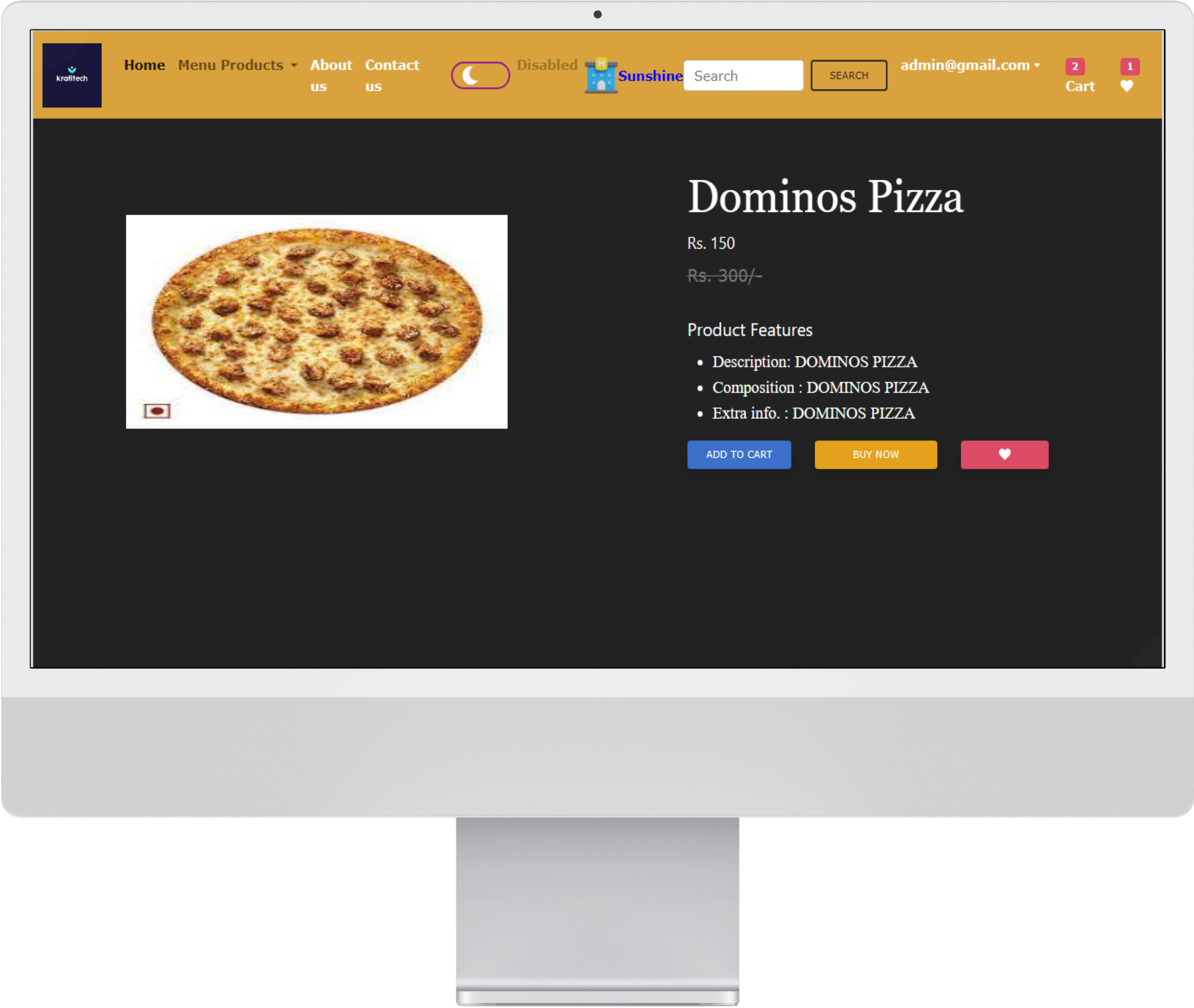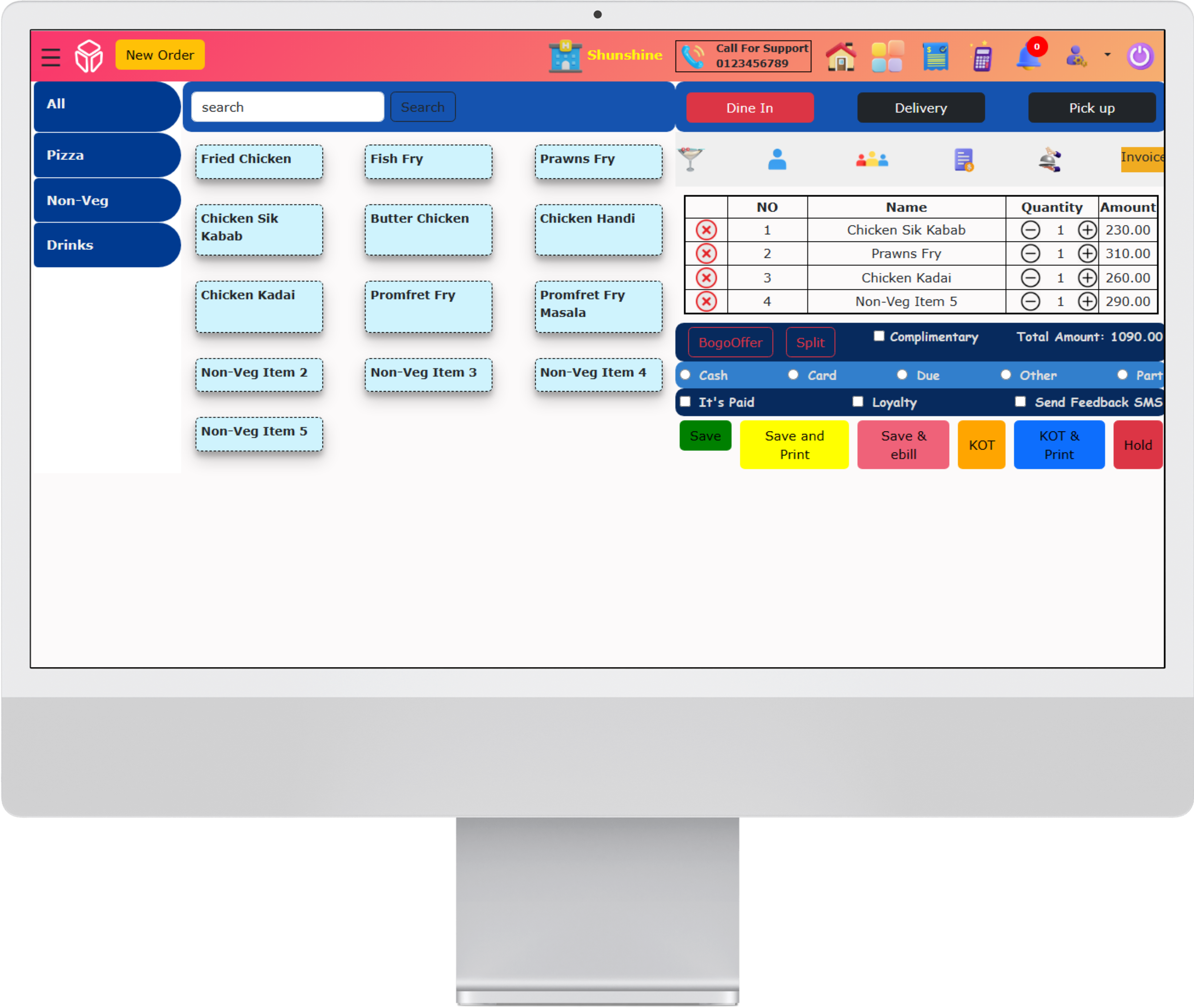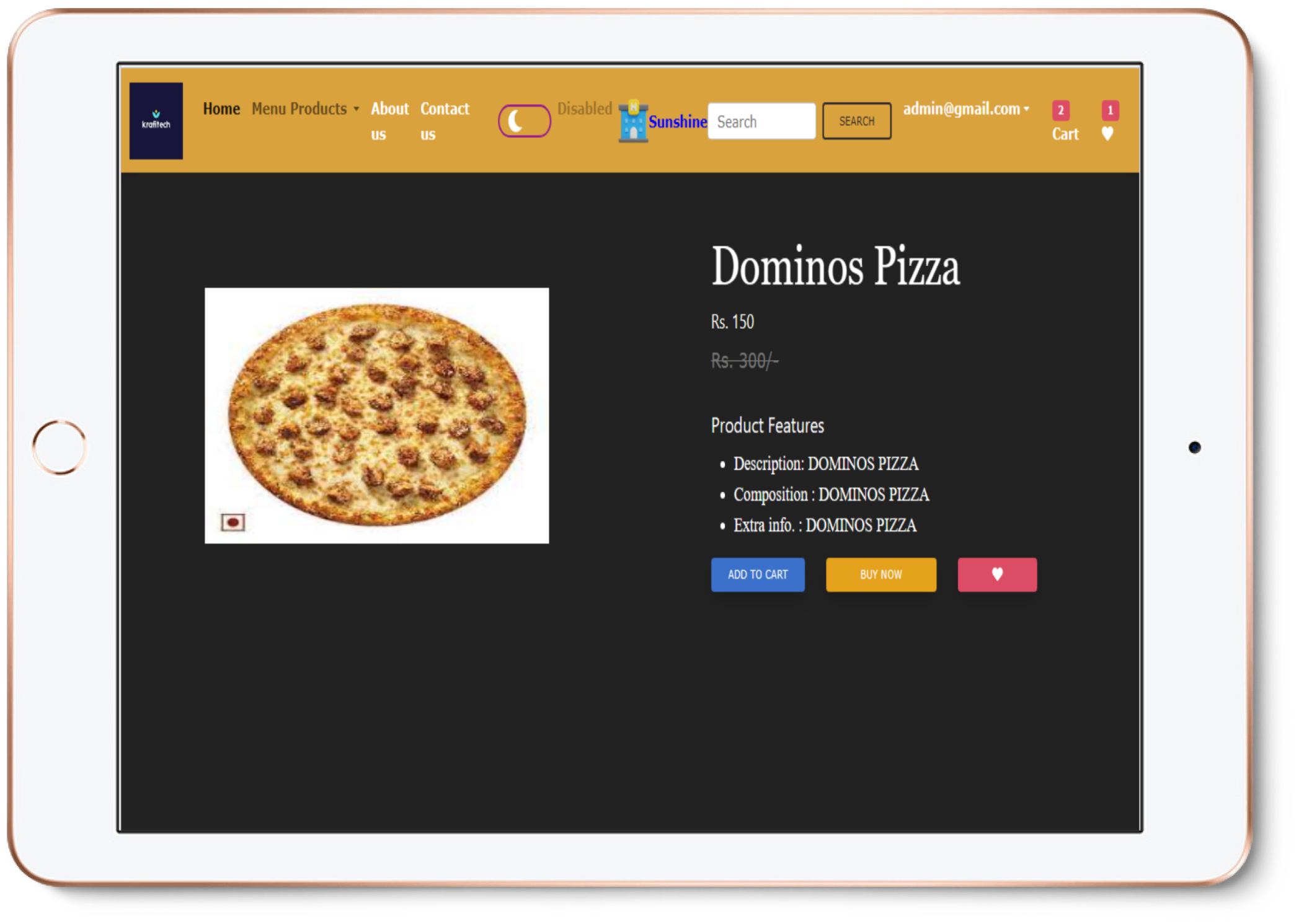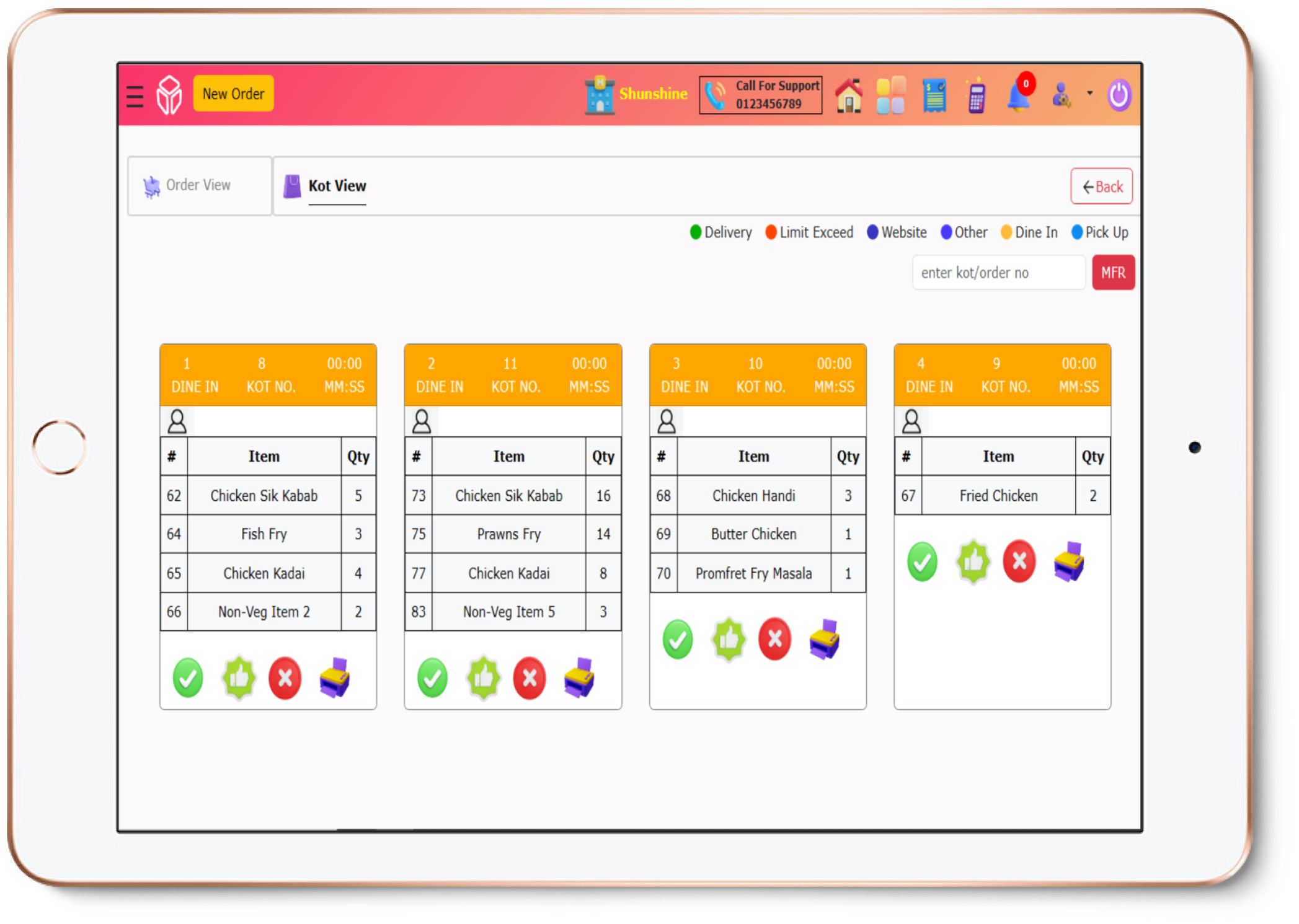KRAFITECH RESTAURANT MANAGEMENT SYSTEM (RMS)
What is Restaurant Management?
Restaurant management entails overseeing daily operations,
including finances, growth, marketing, workforce, and customer
satisfaction. Managers balance business needs, provide
leadership, set objectives, and ensure smooth departmental
functioning. Utilizing effective strategies and restaurant
management software, the goal is to lead the restaurant towards
long-term success.
What is a Restaurant Management System?
A restaurant management system is specialized software designed for the
restaurant industry, aiding managers in essential tasks. It can
encompass various functionalities, including point-of-sale, workforce
and inventory management, and booking systems. While some systems offer
comprehensive all-in-one solutions, others focus on specific areas of
restaurant management.


What Are the Benefits of Restaurant Management
Systems?
Restaurant management systems offer benefits in automating
processes and enhancing the customer experience by delivering
fast and frictionless service. These solutions
consolidate various operations, including payment processing,
financial management, sales tracking, performance monitoring,
and personnel management, into a single platform. They serve as
crucial restaurant technology, streamlining operations and
improving overall efficiency.
What Are the Key Features of a Good Restaurant Management
System?
The best restaurant management systems will share similar
traits
and
features, including the following:
Cloud-Based:-
Cloud-based restaurant management software offers remote
access,
continuous data updates and backups, and minimized start-up
costs through predictable subscription fees. It requires
continuous internet access but provides greater security and
compatibility with similar applications.

Reporting & Analytics:-
CRM functionality in restaurant management systems consolidates
customer
communication, facilitating easy access to accommodate special
requests,
dietary questions, and complaints. Integrated marketing software
enables
control over online advertising, content strategy, promotions, and
marketing emails.

Additional
Integrations:-
Seamless integration is vital for restaurant management
software, enabling smooth data flow between applications.
Customization options and integration with CRM, revenue
management, and POS systems ensure efficient operations and
meet
specific business requirements.
Technical Support:-
A reliable restaurant management system should offer
comprehensive technical support, including live chat,
ticketing
systems, and built-in help resources. Quick access to
troubleshooting and tutorials ensures efficient
problem-solving
for uninterrupted business operations.
Most Important Types of a Restaurant Management
System:-
There are several different categories of restaurant
management
systems
or components that combine to make up the entire system, and
you
can
learn about five of the most significant of these below:
POS System:-
A restaurant POS system serves as a central hub for
sales-related tasks, including payment processing, billing,
and
receipt printing. It seamlessly integrates with
comprehensive
company data for efficient operations. Cloud-based POS
systems
are compatible with mobile phones, iPads, and tablets,
revolutionizing point-of-sale processes by enabling portable
devices for payments and multitasking.
Restaurant Management
Software:-
Restaurant management software streamlines tasks like
consolidating bookings, automating guest communication, and
providing detailed reports for performance insights. It
offers a
comprehensive overview of the restaurant's status through a
dashboard.


Order Management Software
:-
Order management software in restaurant management systems
handles customer and supplier orders, automatically updating
stock levels as customers place orders. It allows easy
access to
past and current orders, ensuring accurate food delivery to
guests. The software facilitates monitoring and reordering
of
specific products or ingredients based on stock levels,
providing insights into purchasing patterns.
Employee Management Software
:-
The employee management component in restaurant management
systems enables workforce management, including creating work
schedules based on business needs and employee availability. It
provides attendance monitoring, tracks holidays and authorized
absences, and facilitates payroll management. Additionally, this
component may offer communication features, HR functions, and
employee benefits management.
CRM
& Marketing Software :-
Restaurant management systems with CRM functionality consolidate
customer communication for easy access, addressing special requests
and
complaints. Integrated marketing software allows control over
promotions, online advertising, and marketing strategies.

